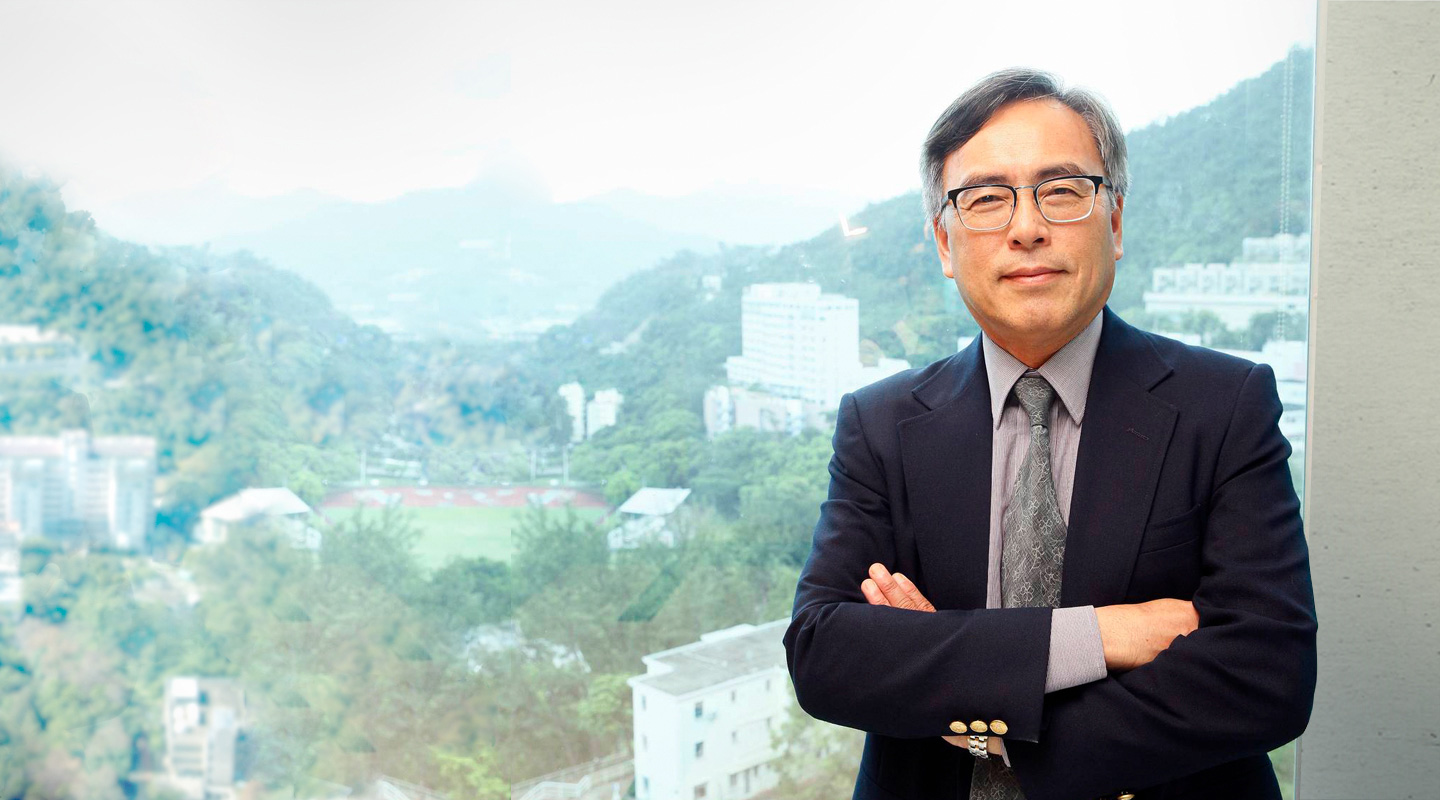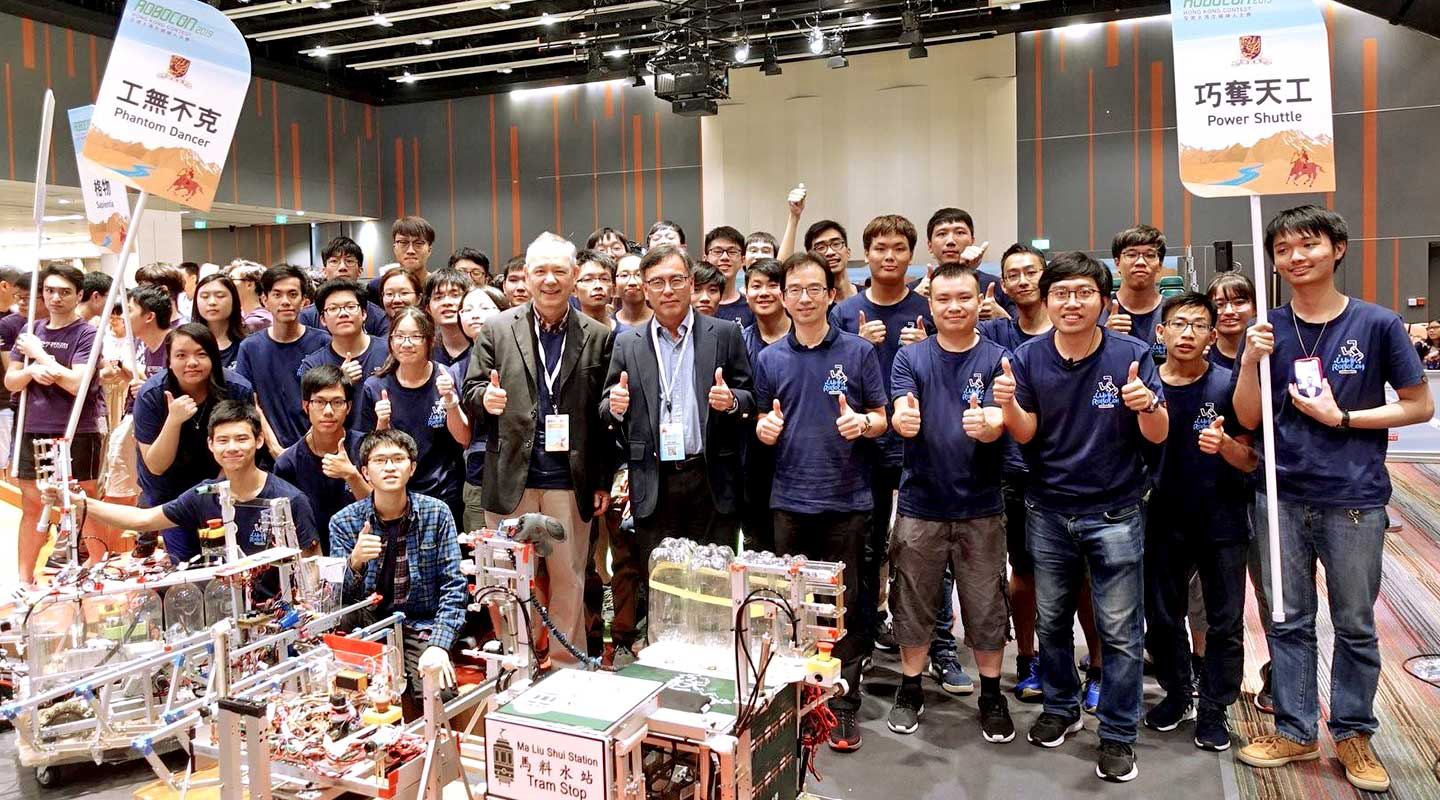Dear readers, With the launch of e-newsletter CUHK in Focus, CUHKUPDates has retired and this site will no longer be updated. To stay abreast of the University’s latest news, please go to https://focus.cuhk.edu.hk. Thank you.
Chipping in on Engineering Education
Zoom-talking with Martin Wong

Prof. Martin Wong is another native son who returned to Hong Kong to take up a leading position in higher education after a distinguished academic career overseas. He grew up in Hong Kong, completed Form 5 and went for further studies first in Canada and then in the US. Appearing on a Zoom screen on a June afternoon, the Dean of Engineering told CUHKUPDates about his past, present and a little future.
Professor Wong characterized his adolescent self as a student who found delight but no extraordinary zeal in the school subjects except mathematics. What piqued his budding intelligence was perhaps the mathematical puzzles and problems which he took upon with the simplest of tools—his mind and a moment of quiet. This predilection for mathematics continues to this day. He did not think twice of choosing mathematics as his undergraduate major at the University of Toronto (UoT).
After UoT he went for graduate studies at the University of Illinois at Urbana-Champaign (UIUC), getting an MS in math and then a PhD in computer science, then an emerging discipline and one that UIUC was and still is top at. The new field of computer science gave his pure math seedlings a fertile ground to sprout into towering trees. What happened after he got his PhD—getting on the bandwagon of the University of Texas at Austin, another prestigious institution in engineering—was history. The young student who harboured a simple and single-minded wish to become a professor has found himself moving with the time and putting behind one milestone after another along the boulevard of academia.
Professor Wong is an expert on electronic design automation (EDA), the design of chips and microprocessors, which is crucial to the rapid advances in computer and mobile technology. His specialty is in physical design, which is how to physically place and connect the transistors on a chip. Imagine the seeming unfeasibility, hence the magnitude of ingenuity required, of arranging billions (yes, billions and sometimes tens of billions) of transistors on a chip the size of a fingernail to enable a multiplicity of high-speed computations. An analogy is the design and planning of a city grid to enable all its components and functions to work in unison to deliver the services and conveniences of modern urban living, except the chip design problem is orders of magnitude larger.

According to Professor Wong, engineering is a very popular major in the US and elsewhere, attracting top undergraduate students. Even though the field has seen many changes over the years, its basic concepts and principles changed relatively little. Its vast potential and seemingly unlimited applicability are a result of the drastically increased computing power. Professor Wong defines engineering as ‘the application of science and mathematics to solve real-world problems.’ And real-world problems change with the times. In the past, engineering advances have been primarily driven by physics and chemistry. Today, biology is playing an increasingly important role in engineering.
He eventually re-joined his alma mater at UIUC as faculty and during the six years prior to coming to CUHK at the beginning of 2019 he was the Executive Associate Dean, effectively the second fiddle, of the College of Engineering at UIUC. It was a full-time administrative portfolio for a top engineering programme with over 12,000 students and 450 tenured faculty members. He proved equal to the demanding job. The experience and confidence thus gained equipped him very well for the Dean of Engineering position at CUHK.

Professor Wong was pleased to see the Faculty so well endowed with resources, connections and a talent pool of scholars and students. However, two things top his wish-list. One is to grow the capacity of the Faculty further. The Faculty of Engineering has first-class faculty but the number is relatively small even by local standard. This modest scale may limit the opportunities that are being made available locally and across the border. Professor Wong would also very much like to create an environment to facilitate partnering with industry in addition to reliance on public funding. Many in the private sectors, locally and in the mainland, are willing and ready to collaborate with institutions with substantial research capability on projects which would have significant impact on the field and on society. Tapping this resource would definitely take the Faculty to the next level.
Professor Wong was beginning to settle in when COVID-19 struck. He was called into taking emergency decisions and actions to lead the Faculty of Engineering through this unprecedented challenge. The impact of COVID-19 is mostly felt on the Faculty’s exchange programmes with overseas institutions and on the recruitment of international students, initiatives that are hit hardest by the restrictions on travel because of the pandemic. But Professor Wong and his team are closely monitoring the situation and making preparation for the new term in September. The past term of online teaching has made them see what room for improvement there is for virtual classes and what has to be provided for when resuming in-person classes including lab sessions.
As a seasoned engineering scholar, Professor Wong’s advice for those who want to make engineering their major or career is: ‘What you study at college is not necessarily what you do for a living. So it is important to get a good grip of the fundamentals in engineering principles and methods, cultivate the ability to approach problems logically and methodically while expanding your exposure and knowledge horizon.’
Looking into the future, Professor Wong thinks technology will be even more advanced and interwoven into our daily lives. Automation is the trend, with AI and robots replacing human beings in not only menial jobs but also mental and professional ones. There will be more technological applications in real life, especially in healthcare and medicine. Chips, for example, will be found not just in self-driving vehicles but also in our body. Disciplinary transformations are taking place as well, as some medical schools in the world are beginning to incorporate more engineering elements into their curriculums.
Throughout the interview Professor Wong had kept saying he’d like to keep things simple. He came across as a man of simple habits and tastes. Spending time with his family whenever his packed schedules allowed and reading books by Agatha Christie and Martin Gardner (the former general and the latter niche) do not count as especially exotic. Curiously, it is this simplicity, this single-mindedness, that lands him success in positions that require great perspicacity and versatility, whether in the design of chips or in the running of an academic Faculty.
TC